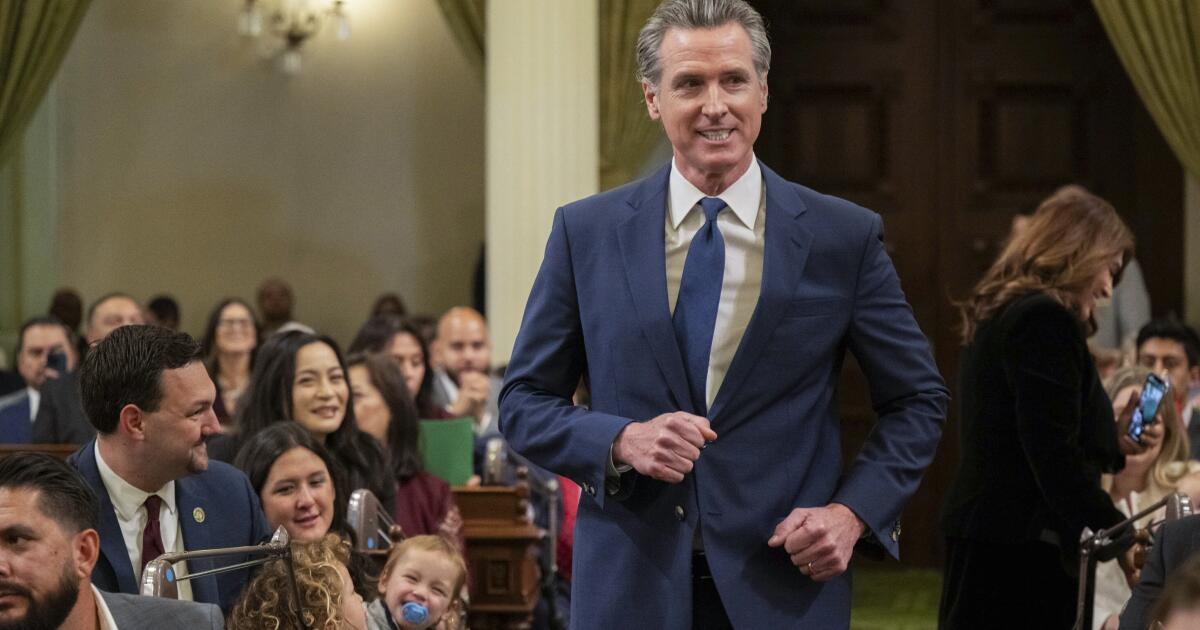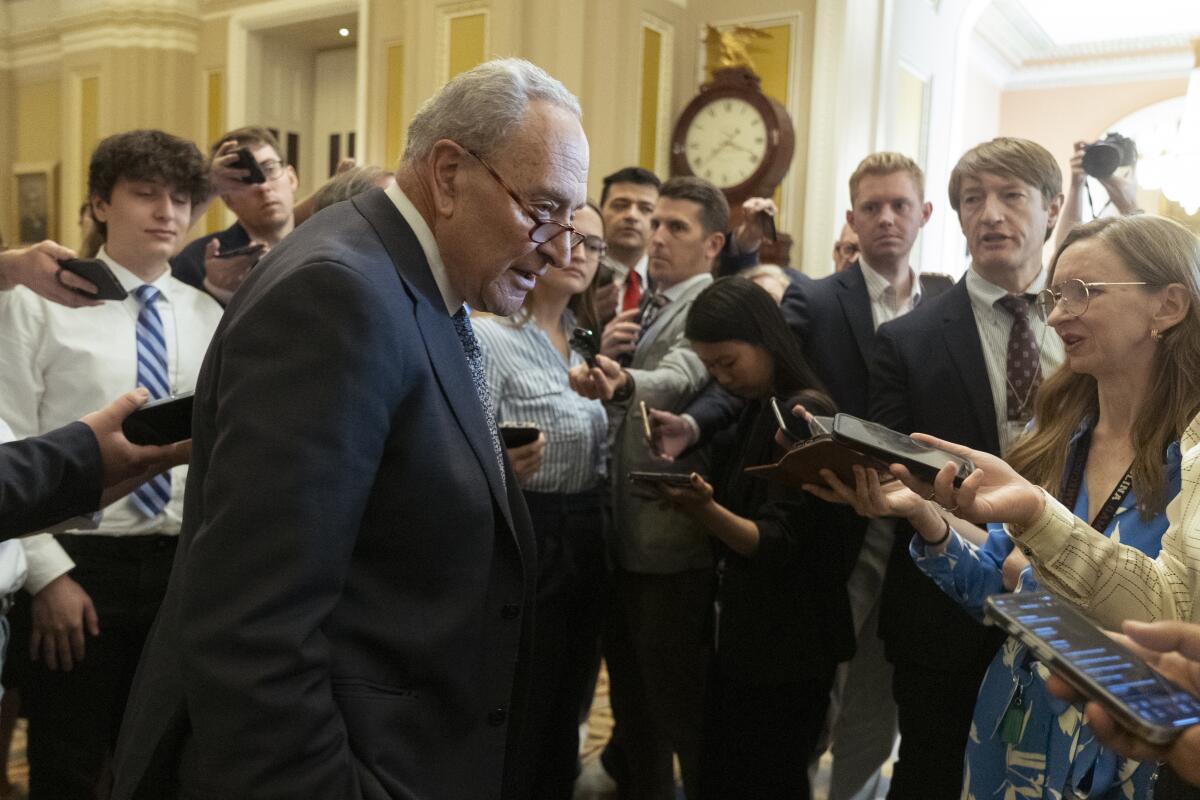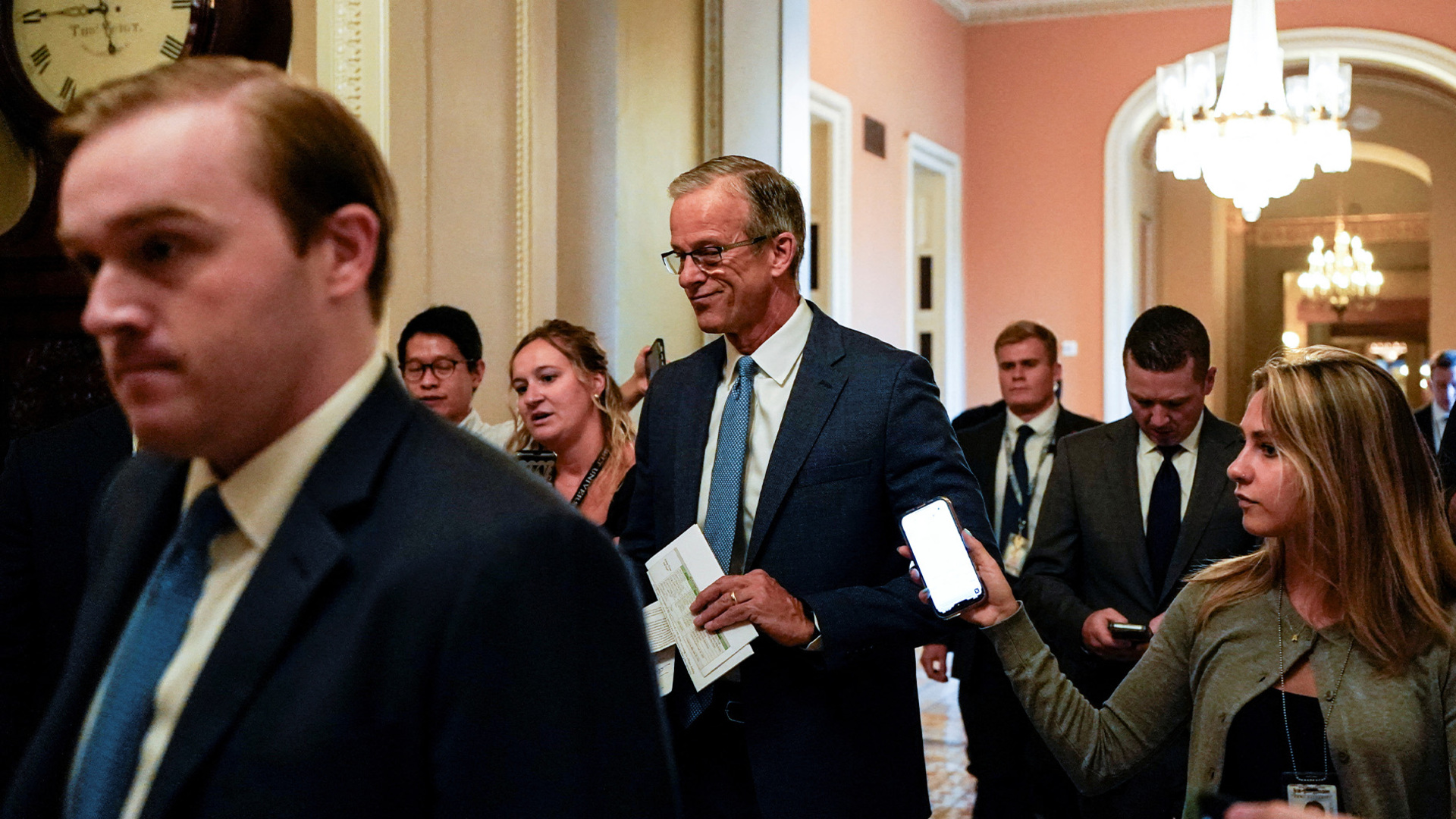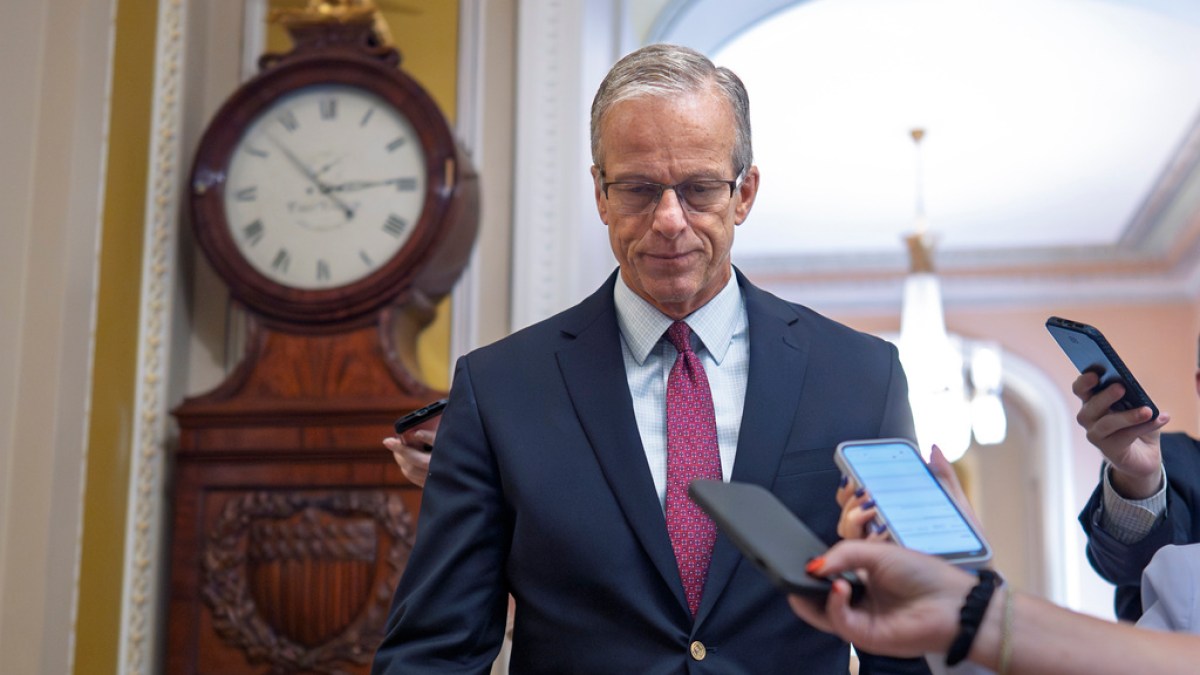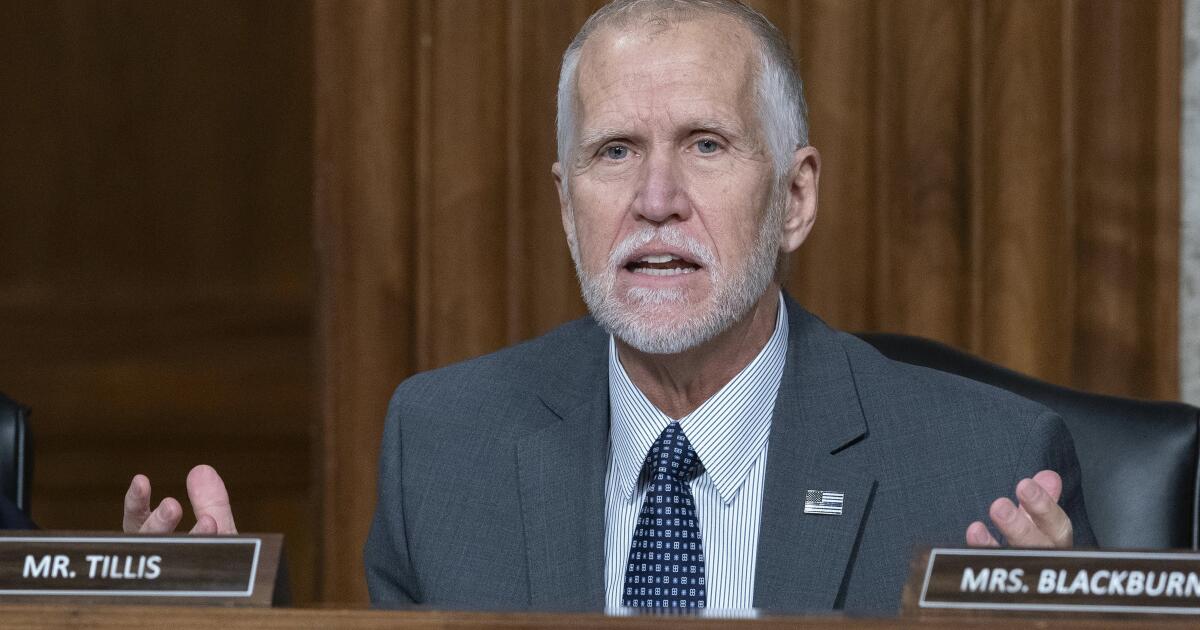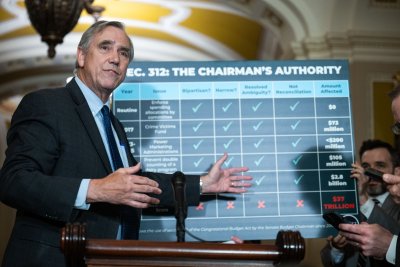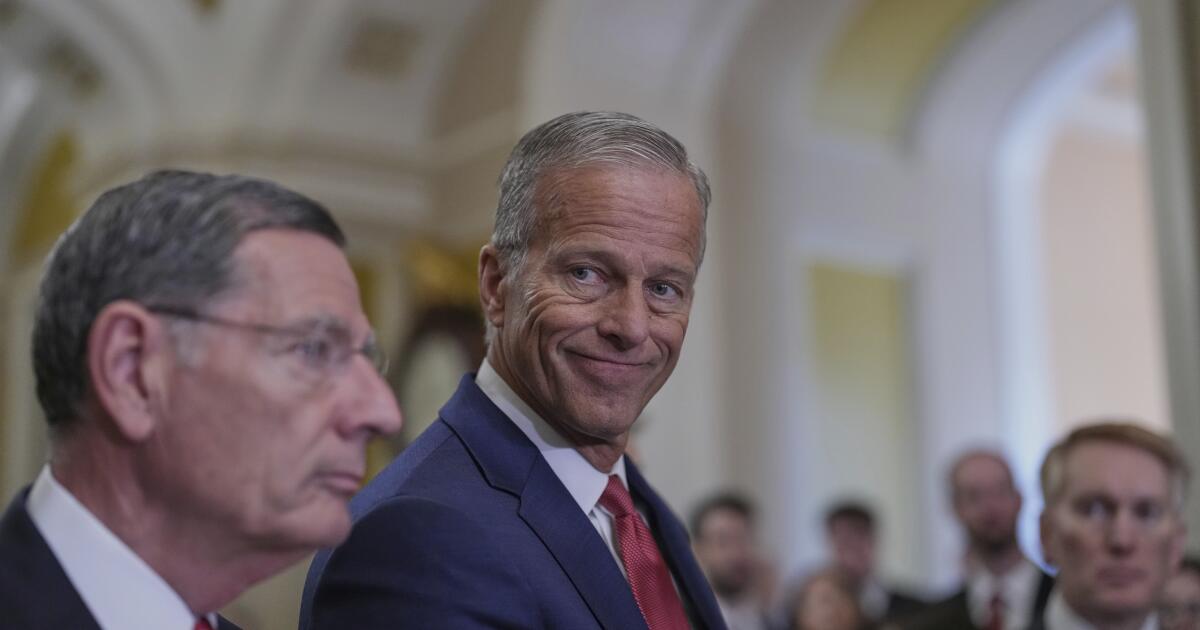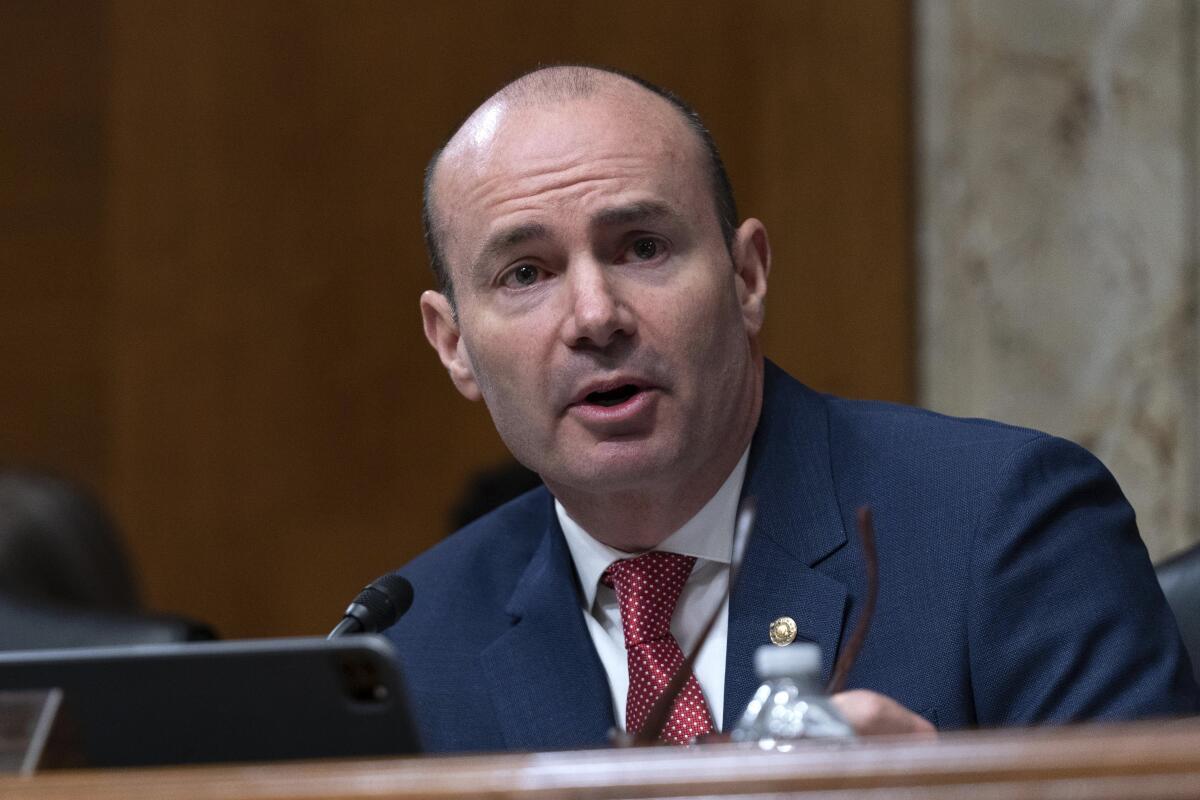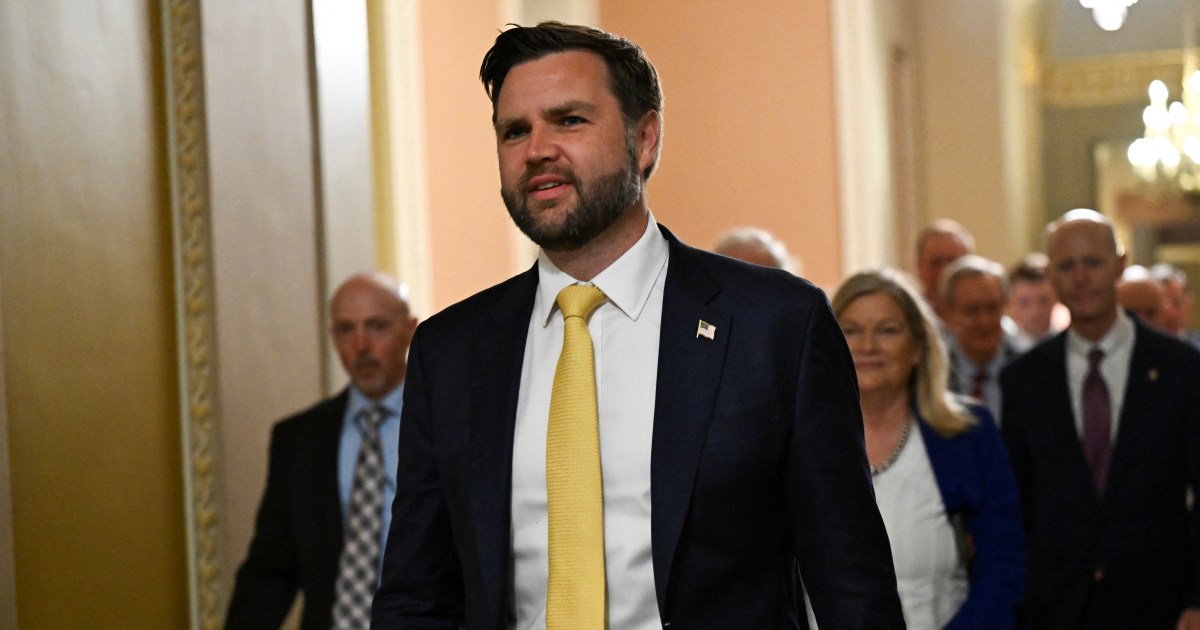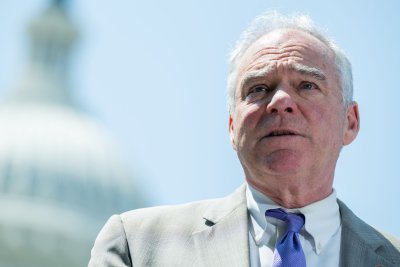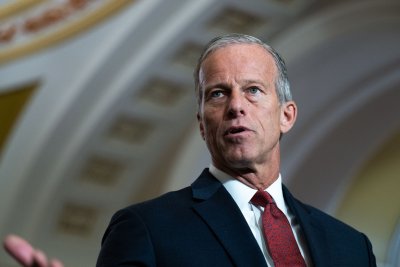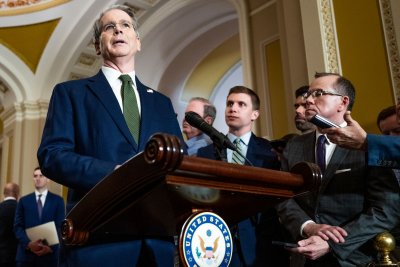Newsom pushes major housing reform through California Legislature
SACRAMENTO — California lawmakers stood around Gov. Gavin Newsom on Monday and celebrated the passage of the state budget and “transformative” housing legislation at the state Capitol.
Between mutual praise and handshakes in front of television news cameras, there was little acknowledgment of the power dynamics that played out behind the scenes: Democratic lawmakers once again gave in to the demands of the soon-to-be termed-out governor.
“We’ve seen multiple situations now where it’s clear that the Legislature is in one place and the governor is in another, whether that’s bills that have passed overwhelmingly and been vetoed, or it’s dragging the Legislature along on budget bills,” said Lorena Gonzalez, leader of the California Labor Federation. “At some point the Legislature needs to legislate.”
Newsom took a rare step earlier this year and publicly supported two bills to lessen environmental review standards to speed up the construction of housing in California. Despite vowing to supercharge homebuilding, Newsom previously backed only smaller-scale policies and construction has stagnated.
In his recently published book “Abundance,” journalist Ezra Klein argued that California’s marquee environmental law stands in the way of housing construction — a critique that struck a chord with the governor. Newsom, who is considering a 2028 presidential run, this year was hellbent on proving that he’s the kind of Democrat who can be part of the solution and push through the government and political logjams.
When a pivotal bill designed to streamline housing construction recently stalled in the state Senate, Newsom effectively forced it through despite the concerns of progressive lawmakers, environmental interest groups and labor unions. The governor did so by ensuring that a state budget bill included a “poison pill” provision that required lawmakers to pass the housing legislation in order for the spending plan to go into effect on July 1.
Newsom called the bills the “most consequential housing reform that we’ve seen in modern history in the state of California” on Monday evening.
“This was too important to play chance,” Newsom said, adding that he worried reforms would have fallen prey to the same opposition as prior years if he allowed the “process to unfold in the traditional way.”
Democratic lawmakers for years have tried to cut through the thicket of regulations under the California Environmental Quality Act, known as CEQA, and faced stiff opposition from powerful labor groups. These groups, notably the State Building and Construction Trades Council, have argued that any relief offered to developers should be paired with wage and other benefits for workers.
The legislation Newsom signed Monday sidestepped those demands from labor.
Assembly Bill 130, based on legislation introduced by Assemblymember Buffy Wicks (D-Oakland), exempts most urban housing projects from CEQA, requiring only developers of high-rise — taller than 85 feet — and low-income buildings to pay union-level wages for construction workers.
Senate Bill 131 also narrows CEQA mandates for housing construction and further waives the environmental restrictions for some residential rezoning changes. The bill, led by state Sen. Scott Wiener (D-San Francisco), additionally designates a host of nonresidential projects — health clinics, child-care and advanced manufacturing facilities, food banks and more — no longer subject to CEQA.
Experts in development said the new legislation could provide the most significant reforms to CEQA in its 55-year history, especially for urban housing.
CEQA generally requires proponents to disclose and, if possible, lessen the environmental effects of a construction project. The process sounds simple but often results in thousands of pages of environmental assessments and years of litigation.
CEQA creates substantial legal risk for homebuilders and developers, and past efforts to alleviate its burdens fell short, said Dave Rand, a prominent Southern California land-use attorney. The bills signed Monday provide relief for the vast majority of housing, he said. High-rise and affordable housing construction often already require union-level pay.
“The worst cog in the wheel has always been CEQA,” Rand said. “It’s always been the place where projects get stuck. This is the first clean, across-the-board, objective, straightforward exemption that anyone can figure out.”
He said clients are eager to take advantage of the new rules, which take effect immediately.
“There’s over 10 projects we’re going to push the go button on with this exemption probably Tuesday,” Rand said.
For non-housing projects, the changes do not amount to a comprehensive overhaul but are still meaningful, said Bill Fulton, publisher of the California Planning & Development Report.
In the past, state lawmakers have passed narrow, one-off CEQA waivers for projects they supported, such as increased enrollment at UC Berkeley in 2022. SB 131 continues the Legislature’s penchant for exempting specific kinds of development from CEQA rules, he said, though the nine categories of projects affected provide more expansive relief than prior efforts.
“They’re cherry picking things that they want to speed through,” said Fulton, who has termed the phenomenon “Swiss cheese CEQA.”
Observers said Newsom’s actions were the strongest he has taken to force large-scale housing policies through the Legislature.
For years, the governor has made audacious promises — on the campaign trail in 2017, Newsom famously promised to support the construction of 3.5 million new homes by the end of this year, a goal likely to fall millions short. But he has been more likely to work behind the scenes or swoop in and praise bills once they’ve passed rather than publicly shape housing policy, said Chris Elmendorf, a UC Davis law professor.
Elmendorf, who supports the new laws, called Newsom’s arm-twisting and willingness to challenge entrenched interests, “an incredible about-face from his MO with respect to the legislative process on controversial housing and environmental issues for the last six, seven years.”
The governor has jammed his policy priorities on other topics through the Legislature before, including climate legislation, infrastructure and oil regulations, with mixed results over the years.
Newsom’s term ends in early 2027. His endorsement of the meaningful housing policies, and his strategy to propel one through the state Senate, became a bellwether of his strength at the Capitol as his time in office wanes.
Wicks said Newsom “put a ton of skin in the game” to force the proposals through.
“He went all in on pushing for taking on these sacred cows like CEQA because I think he recognizes that we have to tackle this problem,” Wicks said.
Wicks’ legislation had cleared the Assembly before the proposal became part of the state budget process, which added pressure on lawmakers to pass the bills. She described herself as “cautiously optimistic” as it moved through the Capitol and said her house understood the need for reform.
Wiener’s legislation was slower to gain traction. Just last week, the inability of the Senate and the governor’s office to reach an agreement on the proposal held up the announcement of a budget deal.
Then Newsom tied the proposal to the budget, essentially requiring lawmakers to pass the bill or risk starting the fiscal year on July 1 without a spending plan.
During the debate on SB 131, Sen. Henry Stern (D-Calabasas) said the legislation had “significant issues” but that he would vote in favor of the measure because of assurances that those would eventually be addressed.
“I think nature and abundance can live side by side. In fact, they must,” Stern said. “We don’t want to live in a moonscape California. Want to live in a livable one.”
Despite the concerns, lawmakers passed both bills on Monday.
Gonzalez was critical of legislators, saying “nobody is voting their values.” She compared the Legislature going along with Newsom’s plan to Republicans in Congress.
“California Democrats are crying foul that legislators and senators are passing things that they don’t even know the effect of that aren’t in line with their constituents that are just being shoved down their throats by Donald Trump,” Gonzalez said. “And those same legislators in California are allowing that to happen to themselves.”
